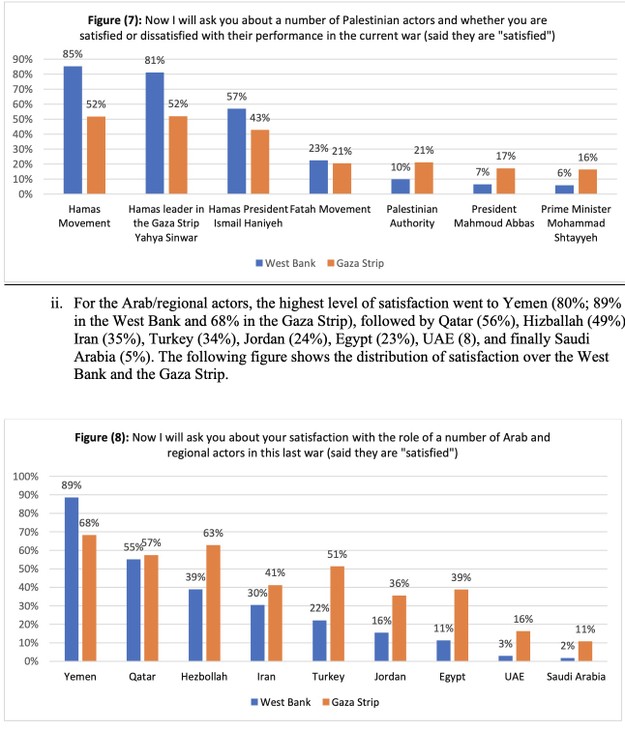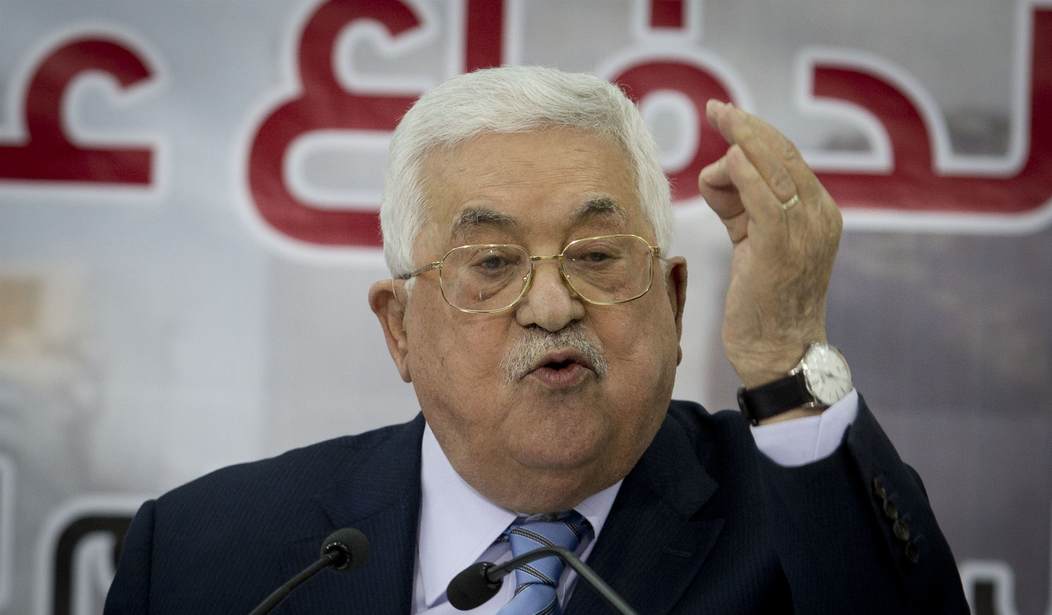Most people I know do support and have supported a 2-state solution in which Israel gets peace and Palestinians get a state.
It seems like common sense. Everybody wins, right?
What most people don’t know is that the 2-state solution has been proposed time and again, and the Palestinians have rejected it every time it has been offered. “From the River to the Sea” is not just a slogan; it is and always has been the policy of Palestinian leadership. The Middle East in the short run, and the world eventually, must become Judenrein. A Palestinian state would be a bonus–it is not the goal. Getting rid of Jews is.
Translation: a majority of Palestinians have agreed there can never be a two-state solution with Israel.
So be it.
If Palestinians want their own state, their only option now is Jordan.
— Edward Mondini (@EdwardMondini) December 13, 2023
One of the basic questions that has to be answered before Israel’s war against Hamas ends is “What do average Palestinians in the West Bank and Gaza want?” Perhaps Hamas, despite having been elected long ago, is no longer supported by Gazans. After all, they are not a democratic movement, and there are no real elections.
Perhaps a new set of leaders can take power once the current hostilities end and a peace deal can be reached.
Yeah, well, good luck with that. The latest poll out of the territories doesn’t look good if you advocate peace or a two-state solution. It turns out that Palestinians like what Hamas did and want to see more of it.
To ensure the safety of our field researchers in the Gaza Strip, interviews with the residents were conducted during the ceasefire, which saw Palestinian women and children released from Israeli prisons in exchange for women and children held by Hamas.
The sample size of this poll is 1231 adults, of whom 750 were interviewed face to face in the West Bank and 481 in the Gaza Strip in 121 randomly selected locations. The sample is representative of the residents of the two areas. Due to the war in the Gaza Strip, we conducted interviews in the central and southern regions inside the selected sample homes, with the exception of one displaced area, where residents were interviewed in the shelter area where they had taken refuge. As for the northern Gaza Strip, residents were interviewed in 24 shelter locations, of which 20 belonged to UNRWA and 4 to governmental institutions. A total of 250 interviews were conducted in these shelters, and another 21 were conducted in the homes of relatives and friends of displaced people from the north. Despite the large representative sample, the margin of error for this poll is +/-4. The increase in the margin of error is due to the lack of precision regarding the number of residents who stayed in their homes, or in shelters, in the northern parts of the Gaza Strip which we did not sample.
The poll was conducted as well as possible under the circumstances and during the cease-fire for obvious reasons. The researchers tried to account for biases that would inevitably crop up. However, it really is impossible to quantify the effects of the extraordinary conditions under which the poll was conducted.
Given the limitations, I look at this poll not as a way to precisely measure sentiment, but rather to indicate the broad scope of opinion and get a sense of scale.
And no matter how you slice it, Palestinians like what Hamas did, and those in the West Bank especially like it, probably because they haven’t had to deal with the consequences in the way that Gazans have.
Findings indicate that the ongoing war between Hamas and Israel in the Gaza Strip has had a significant impact on a range of internal Palestinian issues and on Palestinian-Israeli relations. The most important of these effects can be summarized in the following changes:
- Support for Hamas has more than tripled in the West Bank compared to three months ago. In the Gaza Strip, support for Hamas increased but not significantly. Despite the increase in its popularity, the majority in both the West Bank and the Gaza Strip does not support Hamas. It is worth noting that support for Hamas usually rises temporarily during or immediately after a war and then returns to the previous level several months after the end of the war.
- Support for President Mahmoud Abbas and his Fateh party drops significantly. The same is true for the trust in the PA as a whole, as demand for its dissolution rises to nearly 60%, the highest percentage ever recorded in PSR polls. Demand for Abbas’s resignation is rising to around 90 percent, and even higher in the West Bank. Despite the decline in support for Fatah and Abbas, the most popular Palestinian figure remains Marwan Barghouti, a Fatah leader. Barghouti is still able to beat Hamas’ candidate Ismail Haniyeh or any other.
- Support for armed struggle rises ten percentage points compared to three months ago, with more than 60% saying it is the best means of ending the Israeli occupation; in the West Bank, the percentage rises further to close to 70%. Moreover, a majority in the West Bank believes that the formation of armed groups in communities subject to settler attacks is the most effective means of combating settler terrorism against towns and villages in the West Bank.
- Despite the above-mentioned reference to the lack of confidence in the seriousness of US and European talk about reviving the two-state solution and despite the increase in support for armed struggle, support for the two-state solution has not dropped in this poll. To the contrary, support for this solution has increased slightly in both the West Bank and the Gaza Strip. This increase seems to come especially from those who believe that the US and European talk about the two-state solution is indeed serious.
You might think, given the reference to the two-state solution, not losing support in the Palestinian-controlled territories is great, except only about a third of Palestinians support the idea in the first place.
There is a ton of interesting information in the poll, and I would highly recommend you go through the results to get a broad sense of Palestinians’ opinions. If you haven’t got a clear sense of just how radical and out-of-touch Palestinians are, you really should familiarize yourself with what they say.
These people approve of Yemen while hating all the more moderate–I use that term very loosely–Arab states.
Yemen. Yuck.

Palestinians give Hamas great marks for leadership and hate the Palestinian Authority, presumably because they are not radical enough, and of course, they are horribly corrupt.
It is difficult to see who exactly would be a “partner for peace” after the war. Chances are that Israel will close off Palestinian access to Israel for the foreseeable future, which will be horrible for the West Bank and Gaza and a real shame. And you can rest assured that no Arab country wants much to do with the Palestinians because they are radicals who love war.
That is one of the dirty little secrets of the Palestinians–Arab countries hate them because they are nothing but trouble. The whole “open-air prison” claim behind the Israel-Gaza conflict ignores the fact that Gaza abuts Egypt, and Egypt blockaded Gaza, too, because it is a hotbed of political radicalism. Nobody likes them except Iran and Iranian proxies.
Like Yemen. Yuck.







Join the conversation as a VIP Member